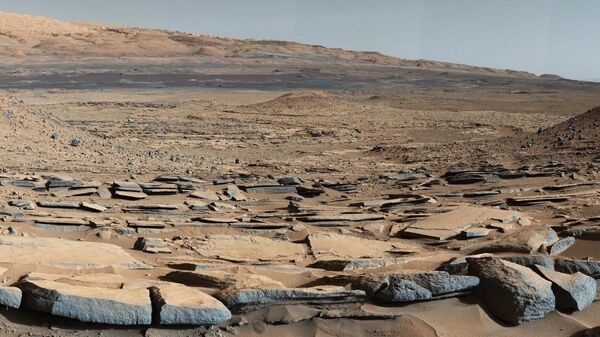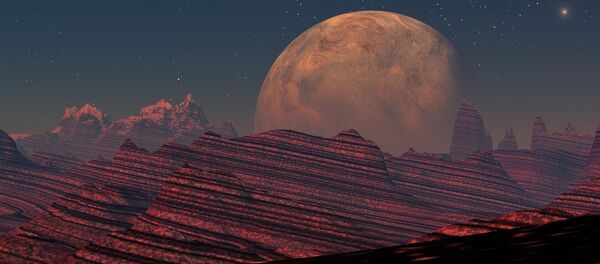Scientists at Oxford University have determined that the Martian surface was rendered uninhabitable after the planet’s water disappeared into the planet’s crust about three billion years ago.
During an interview with Radio Sputnik, Dr. Jon Wade of the Department of Earth Sciences at the University of Oxford explained that the planet’s soil didn’t literally soak up the surface water like some kind of sponge; rather, water reacted with the Martian crust and ended up forming “different minerals.” He also added that similar processes actually occur on Earth as well, though they are far less common.
"Water is structurally bound in the minerals. If we’re right, it’s also spread throughout the sort of top hundred kilometers worth of the Martian planet. There’s undoubtedly evidence for subsurface ice. We’re suggesting that the vast majority of water however was irretrievably lost and that’s what really doomed life on Mars," he revealed.
According to Wade, the northern half of Mars might be a better site for a human colony than the planet’s southern hemisphere, although any colonization attempt would be "a case of will."
"Mars would not be my number one holiday destination: it’s very cold, it has little atmosphere, it’s very dry," the scientist jokingly remarked.
Dr. Wade also pointed out that while there are definitely more hospitable planets, they’re simply too far away from Earth for us to consider colonizing them, with Mars being a much more realistic option for a manned mission.
"Mars is, at least in a human lifetime I think, accessible; I mean, whether it’d do you any good floating for a few years in space to get there. Venus is definitely not hospitable – much too aggressive environment; I think the only probes that landed on its surface were Russian probes in the seventies. Mercury is too close to sun, very unpleasant. There’s the Moon of course, and I suspect it will be the first one to be colonized. Really, Mars is the only other game in town," he explained.
The views and opinions expressed by Dr. Jon Wade are those of the speaker and do not necessarily reflect those of Sputnik.




